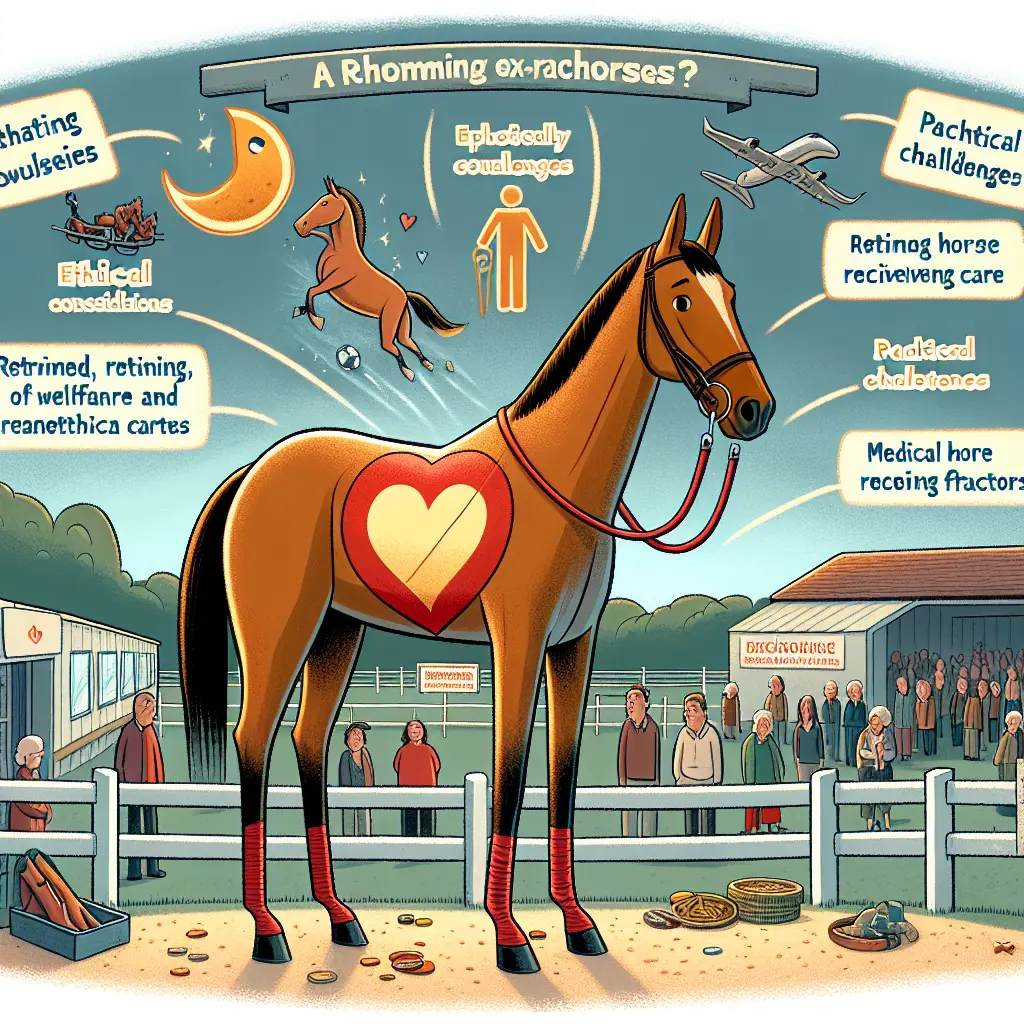Ethical Dilemmas in Rehoming Ex-Racehorses: Can You Balance Morality and Practicality?
Rehoming ex-racehorses presents a complex interplay between ethical, moral, and practical considerations. With thousands of racehorses leaving the industry each year, ensuring their welfare is a significant challenge for the equine community. In this article, we explore the ethical dilemmas associated with rehoming ex-racehorses and examine ways to balance morality with practicality.

Why Rehome Ex-Racehorses?
Approximately 5,000 racehorses exit the racing industry annually due to factors like poor performance, age, injury, temperament issues, and veterinary problems[1]. Despite these challenges, many can
Ethical Considerations
Welfare and Morality
At the heart of rehoming is ensuring the animal's welfare. The decision involves a moral obligation to prevent unnecessary suffering and provide a good quality of life[2]. Organizations like Retraining of Racehorses and the Retired Racehorse Project work towards retraining and rehoming these horses, highlighting their potential in various equestrian disciplines[1][4].

Euthanasia Decisions
For severely injured racehorses, euthanasia is sometimes considered the most humane option. However, this raises ethical questions about valuing a horse's life beyond its economic utility[2]. Alternatives such as rehabilitation and rehoming offer viable options, balancing welfare with practical considerations[2].
Economic Factors
The cost of caring for injured horses can be prohibitively expensive, influencing decisions on euthanasia versus long-term care. Economic factors often play a significant role, contrasting with the moral imperative to prioritize a horse's well-being over financial considerations[2].
Practical Solutions and Challenges
Rehoming Organizations
Groups like HEROS and The Retired Racehorse Project have established robust systems for rehoming ex-racehorses. They provide medical care, training, and match horses with suitable owners, often through trial periods or loan agreements[1][4].

Retraining and Repurposing
The versatility of ex-racehorses allows them to excel in various disciplines, from eventing to therapy programs. Events like the Thoroughbred Makeover showcase their potential, attracting trainers and owners interested in adopting them[4].
Ethical Veterinary Care
Veterinarians face ethical dilemmas when client demands conflict with the best interest of the horse. Ethical conduct is crucial in managing these situations, ensuring that decisions prioritize animal welfare[5].
Balancing Morality and Practicality
To effectively rehome ex-racehorses while addressing ethical concerns, several strategies can be employed:
Advocacy for Welfare Standards
Encourage stronger welfare regulations within the horse racing industry. This includes improving conditions for active racehorses, such as increased turnout areas and better management practices[3].

Financial Support and Resources
Increase funding for rehoming and rehabilitation centers. This financial support can offset the costs associated with long-term care, reducing the reliance on euthanasia as an economic solution[2].
Education and Public Awareness
Promote public understanding of the needs and potential of ex-racehorses. This awareness can foster a supportive environment for rehoming and retraining efforts[3].
Industry Collaboration
Foster cooperation between racing and equestrian communities to create more opportunities for retired racehorses. This can include joint initiatives for rehoming and retraining[1][4].
Conclusion
Rehoming ex-racehorses is a multifaceted challenge that intertwines ethical, moral, and practical considerations. By understanding the complexities involved and working towards balancing morality with practicality, we can improve the welfare of these remarkable animals. Through collaborative efforts, public awareness, and robust welfare standards, it is possible to ensure that ex-racehorses find fulfilling second careers.
To support these efforts, individuals can engage with organizations like Retraining of Racehorses and The Retired Racehorse Project, advocating for better welfare practices and considering adoption for these talented and versatile horses.
For further information on rehoming initiatives and to support the cause, visit the following resources:
Additionally, explore our range of horse-related products to support your equestrian lifestyle:


